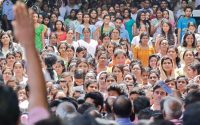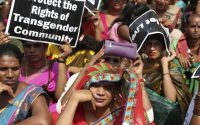Aadhaar is an enabler of citizen rights, govt tells Supreme Court
Source – livemint.com
New Delhi: The state is using Aadhaar as an “enabler of the citizens’ right to life including their right to food, livelihood, pension and other social assistance benefits”, the centre told the Supreme Court on Wednesday.
In its opening argument in support of the 12-digit unique identification number, attorney general K.K. Venugopal said the main objective of Aadhaar was entrenched in Article 21 (right to life) and aimed at curbing rampant corruption and poverty in the country.
A Constitution bench headed by Chief Justice Dipak Misra said the centre would have to pitch its arguments against those of the petitioners, broadly including the right to life, privacy, dignity, surveillance, exclusion etc.
Venugopal also sought the court’s permission to allow the chief executive officer (CEO) of the Unique Identification Authority of India (UIDAI), Ajay Bhushan Pandey to respond to the technical/security aspects of Aadhaar through a power point presentation. The court will take a decision on this on Thursday.
Explaining the essence of the right to life, Venugopal said, “Right to life is not merely a right to live like an animal but a full right. If you have no food, shelter —where is the question of privacy of these people being affected?”
He added that the question was not of violation of fundamental rights but of balancing them. The court observed that the centre would have to meet its arguments on the right to life against the exclusion claims of petitioners where they said that people were being denied services due to lack of Aadhaar.
Venugopal said that a few NGOs had approached the court on the issue but no deprived individuals had come to court saying that he/she had been denied benefits for not having Aadhaar. This line of argument did not find favour with the court who said that a constitutional challenge could not be tested against whether a person comes to court or not.
Justice D.Y. Chandrachud added that economic and social guarantees were not antithesis to political guarantees. “It’s not as if privacy is for one segment of the population and not for another,” he said.
On the question of people enrolling for Aadhaar before the Act was in place, the centre said that between 2009 and 2016, people had voluntarily opted for it and so, there was no violation of fundamental rights. At this point, justice Chandrachud pointed out that when people volunteered, they did not accept surrendering or commercialization of their personal data. They did not know that there were no safeguards at that time.
The court further questioned the centre over a likely case of financial exclusion in case of a pensioner living abroad and having to personally be present in the country to claim pension under the Aadhaar scheme.
“The question of financial exclusion is undeniable. The fact that it was in consideration by the cabinet secretary in December 2017 is indicative of it being a serious issue. We want the government to tell us what steps it is taking in this regard,” Chandrachud said.
The attorney general said that he would submit the same to the court and that the government would not leave anyone in the lurch.
As part of the petitioners’ arguments against Aadhaar, its architecture has been criticized on grounds of it leading to a surveillance state by tracking people or using their personal data if not curtailed, being destructive of a limited Constitution and violating an individual’s fundamental right to privacy. Issues with UIDAI’s enrolment procedure that raised concerns about data breaches have also put been forth.



